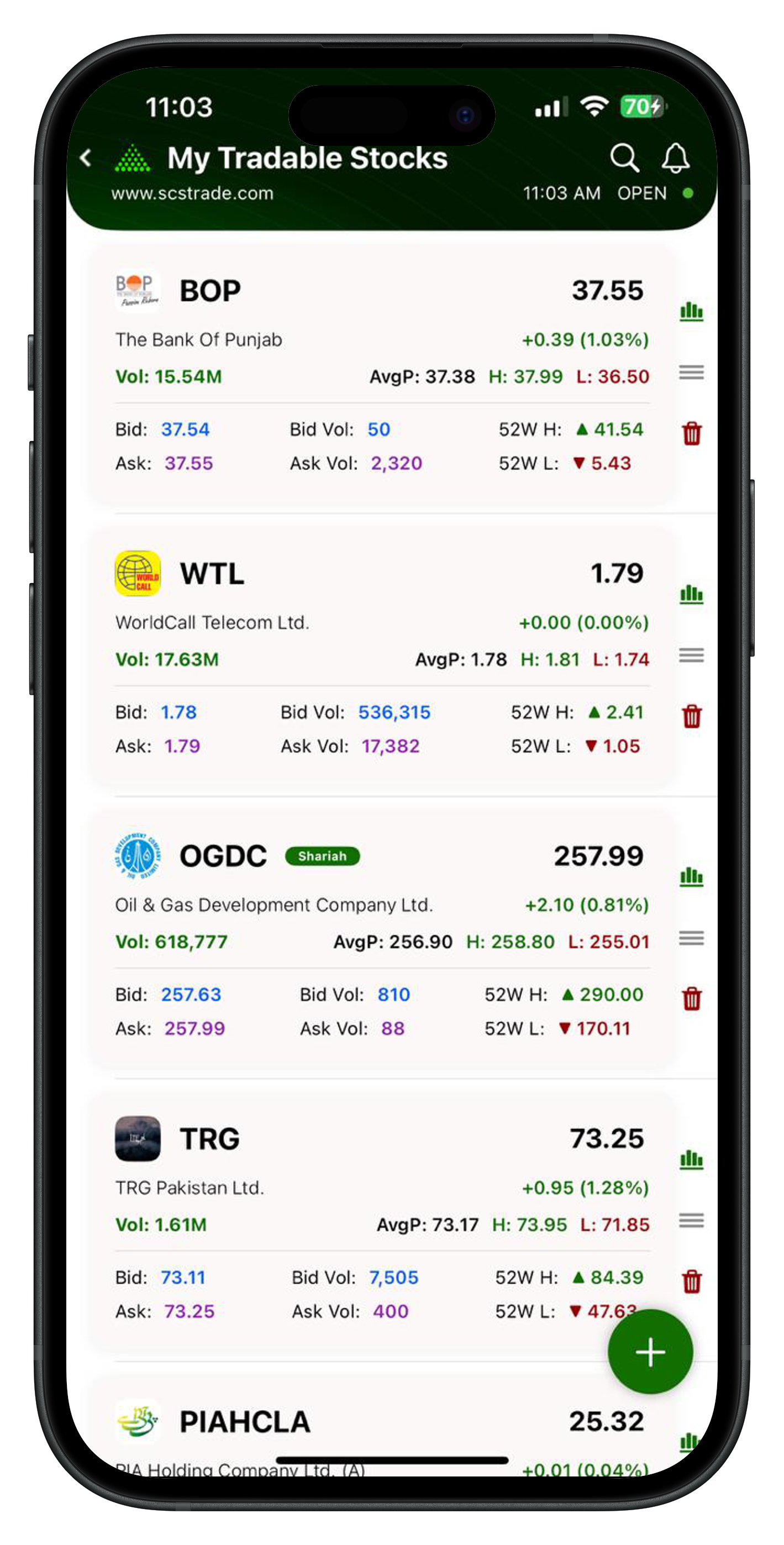Start Investing in Pakistan Even If You're a Beginner
Simple guidance, easy tools, and expert support to help you invest with confidence on the Pakistan Stock Exchange (PSX).
Why Invest with SCS
Everything you need to start and grow your PSX investing journey — in one trusted platform.
Fast Account Opening
Open your PSX investment account online with minimal documents and guided support.
Reliable Market Data
Real-time PSX prices, depth, charts, and indices — all in one clean interface.
Research-Driven Decisions
Daily research, screeners, and insights from SCS analysts to help you decide.
Low & Transparent Fees
No hidden charges. Clear commission slabs and fully disclosed costs.
How It Works
Open your investment account in just a few simple steps.
Sign Up
Enter your basic details and verify your CNIC / NICOP online.
Upload Docs
Submit your bank statement, signature specimen, and income details securely.
Start Investing
Add funds, explore research, and start trading on PSX with confidence.
Swipe to preview



See Your PSX Portfolio in a New Light
Track your holdings, monitor the market, and discover new opportunities with the SCS investing platform for Pakistan.
- SCS Research Desk
- Watchlist & Smart Alerts
- Company Financials Snapshot
- AI Stock Analysis
- Technical Tools & Indicators
A Brokerage You Can Trust
With decades of experience and regulated operations, Standard Capital Securities has helped thousands of Pakistanis participate in the stock market.
From onboarding to execution and research, our team is focused on helping you invest safely and confidently in PSX.
Serving 20,000+ investors across Pakistan*
Regulated & connected with:




*Internal estimate. Consult your risk profile before investing. Capital markets are subject to risk.
What Our Clients Say
“SCS made investing easier for me as a beginner. The onboarding and support team guided me step by step.”
Ahmed, Karachi
“Clear research, smooth mobile app, and very helpful tools for tracking my portfolio.”
Sara, Lahore
“A safe, trusted brokerage where I can invest for the long term with confidence.”
Usman, Islamabad
Frequently Asked Questions
Need help before you open an account?
Talk to our team for guidance on documents, charges, and the investing process.
Start Investing Today
Open your SCS investment account in minutes and take your first step toward building long-term wealth through the Pakistan Stock Exchange.